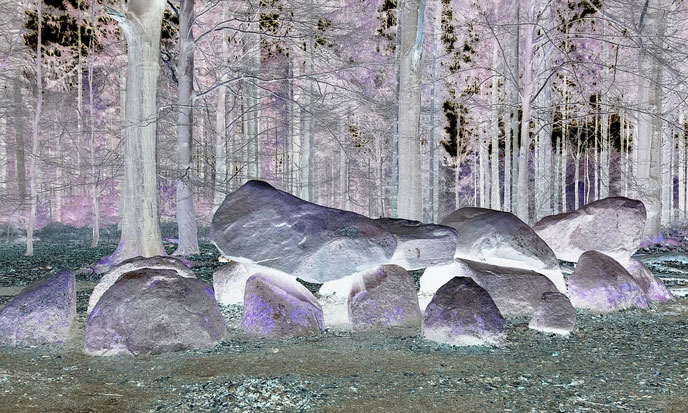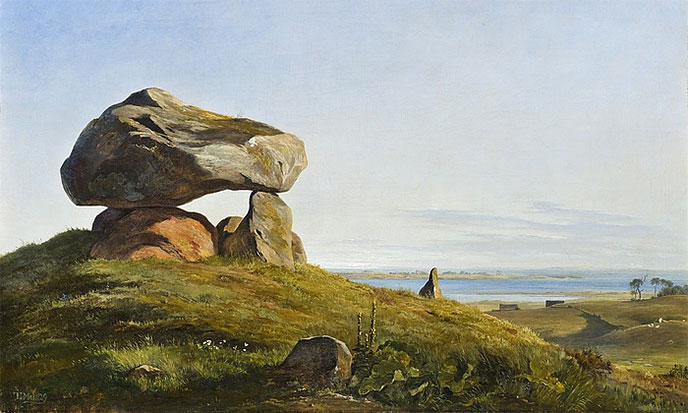
A bunch of nonsense has been told about megalithic stones, the largest being to assign menhirs to the Celts and Gauls. Menhirs and dolmens were there long before them.
“The huge stones erected by human hands, isolated or grouped, called Celtic or Druidic monuments, have long exercised the sagacity and especially the imagination of archaeologists. Many systems have been proposed to explain their origin and destination, and yet these two points still remain obscure. People have founded theories more or less ingenious on some particular facts, more facts have come to destroy them, and there is not, I believe, any research whose results are more consistently negative.” (Source)Prosper Merimee , Of monuments called Celtic or Druidic, The French Athaeneum, No. 11, Saturday, September 11, 1852, pp. 169-171.
These words pronounced two centuries ago are still quite valid. It remains unclear how these large stones were so numerous to be lifted, and why. From the perspective of official Archaeology, the Neolithic civilization appeared around -7000, even before the construction of the first Egyptian pyramid, dated -2600.
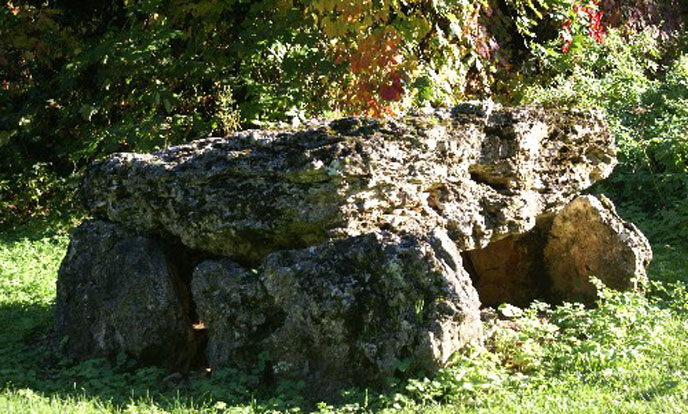
It has covered the world with colossal stones. From Malta to Spain, from Denmark to the Caucasus, from Britain to Bosnia, from India to Turkey, from Manchuria to Japan, from America to Korea, from the Pacific to the Indian Ocean, this civilization has left many remains in the form of dolmens, tumuli, menhirs, etc..
France is one of the favourite countries of the Neolithic people, as evidenced by the thousands of menhirs of Brittany or elsewhere. However, since Charlemagne, the Roman Catholic church did its best to get rid of them. Priests, rectors and bishops have struggled to break down these stone idols, relics of paganism. Old Religion of the Druids and witches, this cult of the Devil was the promise of Hell, and smelt like the pyre. In the ninth century, Europe was covered with megaliths and tumuli.
Not really all of Europe, rather that part of Western Europe the Templars would unify two centuries later. It is estimated that 80% of the megaliths have vanished from our soil since then. And not just because of the new religion.
Farmers cleared their fields of these unproductive stones, when their weight allowed them. Others were buried, moved or broken. More recently, the main destroyer was the French “Ponts et Chaussées?, before the recent creation of the DDE, that no longer touch them.
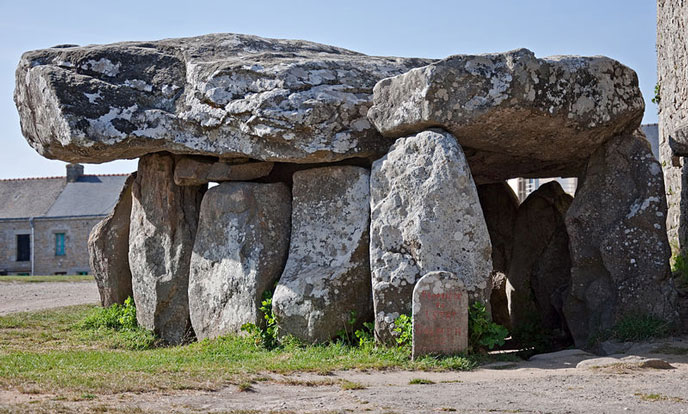
“We have seen enormous efforts made by the Neolithics to cut, carry and set up these blocks of stone which significance is still unknown. The Neolithics worked with rudimentary instruments, we have found only stone axes, arrowheads and bone needles, pottery, some jewelry, etc.. “ (Source)Prosper Merimee , Of monuments called Celtic or Druidic, The French Athaeneum, No. 11, Saturday, September 11, 1852, pp. 169-171. they knew the “cold” metallurgy on meteorites, and the metallurgy at low temperatures.
But they had no hard metal tools and did not know the wheel. People can only wonder how, with so crude tools, the Neolithics have been able to cut and transport stone of such weight on such long distances. “For example, the heaviest cut stone in the world, perfectly squared, weighs 1200 tons. It lies since the dawn of time, half buried in the town of Baalbek in Lebanon, near the ruins of a Roman temple.”
“Whatever the means which the architects of these wild monuments have used, they had to devote much time and effort, hence it is reasonable to conclude that they have worked for an important purpose such as that of the gods honor or memory of the illustrious dead. A civil destination and a material utility are unacceptable.” (source)Prosper Merimee , Of monuments called Celtic or Druidic, The French Athaeneum, No. 11, Saturday, September 11, 1852, pp. 169-171.
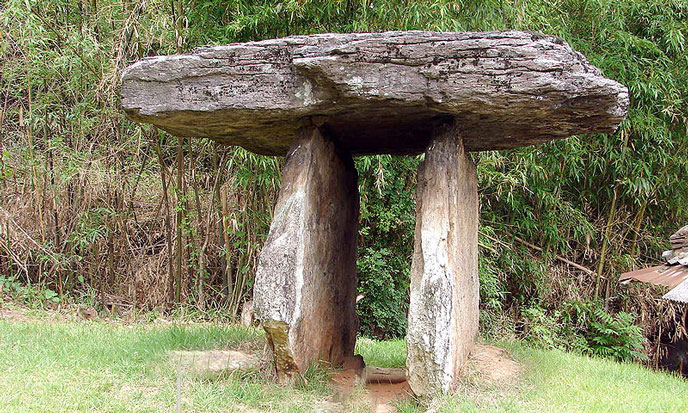
Singular conclusion of Merimee! Why honoring gods of questionable morals would be a higher goal than taking care of men?
Why such a work for those who no longer exist would it be more “acceptable” that the same work for those who can still enjoy it? The way of thinking of the 19th century is a puzzle for the 21st.
 We do not have any evidence that the dolmens were tombs. It is possible, here and there, that those monuments were used by the Celts to bury their warlords, but it is a secondary use, not foreseen by the builders. The pharaohs of Egypt also have squatted ancient monuments to make their graves …
We do not have any evidence that the dolmens were tombs. It is possible, here and there, that those monuments were used by the Celts to bury their warlords, but it is a secondary use, not foreseen by the builders. The pharaohs of Egypt also have squatted ancient monuments to make their graves …
The bishops and lords of the Middle Ages were often buried in churches or cathedrals, which did not make them tombs. The question therefore always arises, nagging: what could these very large stones be used for?
The answer is to be found in the geobiology, bioenergy and related disciplines.
Large stones emit scalar waves. These waves which diffuse in spirals and not in a linear way like electromagnetic waves, were discovered by the genius Nikola Tesla. It seems that they have many applications that are beneficial to health, in particular. Because they are healing waves.
Every living thing emits scalar waves. But strangely, the megaliths also emit. Of greater quantity and power than other stones. I noticed that the menhir of Guihalon, near Lamballe, in the Côtes d’Armor, emits more scalar waves than an entire cliff. This awesome menhir is a famous healer!
I experienced amazing adventures under the flagstones of the covered alleys. I invite you to discover La Roche Aux Fées, in Ille-et-Villaine. You will be satisfied with the journey! Take my healer’s word!
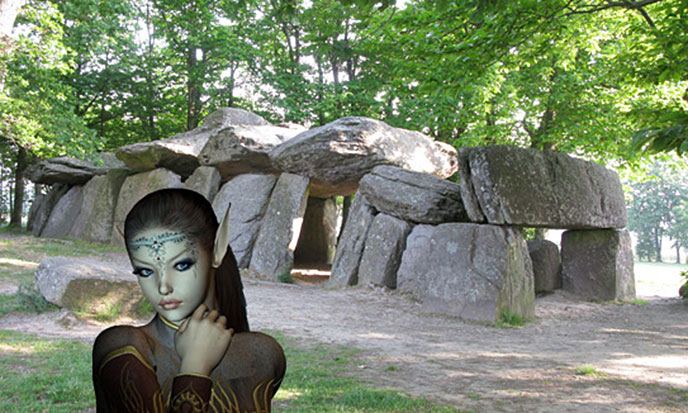
Now, I think it is useful to make this point: I was asked the difference between a dolmen and a long barrow. Theoretically, the dolmen has only one covering stone, whereas the long barrow has several. A long barrow would therefore be a series of dolmens, forming not an alley, but a tunnel.
In practice, the largest long barrows are often called dolmens – such as the dolmen of Antequerra in Andalusia – the appellation “long barrow” is rather reserved for small monuments. But this is not an absolute rule — as West Kennet Long Barrow can proove!
On this page, how many dolmens and how many long barrows?
